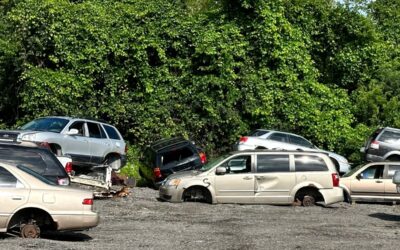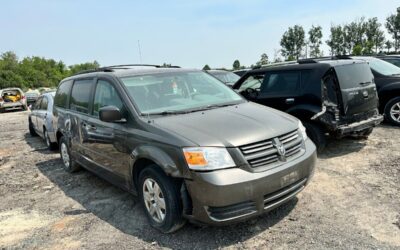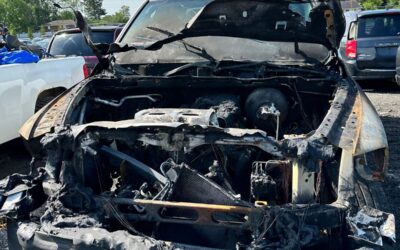Introduction
Many people misunderstand car scrapping and hesitate to dispose of their old vehicles. They fear hidden costs, environmental harm, or legal compliance. These misconceptions often delay decision-making.
Due to these misconceptions, many keep their junk cars parked on their property and let them rust. Some even do illegal dumping, which can harm the environment and result in fines.
You need the right information to scrap your car properly. This guide will debunk common myths and help you understand how legal and eco-friendly car scrapping works.
Misconception 1: Scrapping a Car is Expensive
People think they have to pay to scrap their car, but that’s not true. Most car scrapyards pay for your old car based on its weight. The payout you get depends on the scrap metal market and the usable parts inside the car. Many companies offer free towing services and also do all the paperwork. If someone charges you for scrapping, they’re likely not a reputable provider.
Misconception 2: Scrapping a Car is Bad for the Environment
People fear that scrapping a car harms nature, but it helps when done properly. Licensed recyclers follow strict regulations to dispose of dangerous fluids safely and recycle about 80-90% of the car. Metals, batteries, and tires are reused, reducing waste. Fluids like oil and coolant are drained to stop pollution. By scrapping your car responsibly, you help protect the environment. Auto recycling keeps old vehicles from polluting landfills and helps save energy in manufacturing new materials.
Also Read: Car Recycling 101: How Your Old Car Can Help the Environment
Misconception 3: You Need Vehicle Ownership to Scrap Your Car
Always work with licensed businesses that comply with legal regulations to scrap their vehicle, but that’s not always the case. In Canada, if you can prove you own the car with a bill of sale or identification, many recyclers will still accept it. If your ownership papers are lost, a trusted scrap car removal company can guide you through the process. You must deal with licensed businesses that follow legal guidelines to ensure a smooth transaction.
Misconception 4: Junk Cars Have No Value
Even if the car isn’t in working condition, it still has value. The metal, tires, battery, and even engine components can be sold or recycled. The heavier your car, the more money you get since scrap yards pay based on weight. If your vehicle has working parts, like an alternator or transmission, you may get a higher price. Scrap metal prices also change, so it’s important to check current rates. Instead of letting your car rust for years, sell it to a recycler and make some profit.
Misconception 5: Selling to a Private Buyer is Better Than Scrapping
Some car owners think they will make more money selling their junk cars privately, but that is not always true. Finding a buyer takes time, and many will ask for expensive repairs before making an offer. Scammers also pose a risk, with fake payments and unreliable negotiations. Scrapping your car is faster, easier, and safer since reputable companies pay you on the spot. Plus, you won’t have to worry about paperwork, ownership transfer, or dealing with difficult buyers.
Also Read: Top 10 Common Myths About Scrapping Your Car in Canada
Misconception 6: Car Scrapping is Illegal or Complicated
Some people think car scrapping involves legal trouble, but that’s a misconception. In Canada, junkyards follow laws to ensure a safe and legal process. As long as you own the vehicle or have proof of ownership, scrapping your car is completely legal. Recyclers also handle all the paperwork for you. To avoid any issues, always work with a trusted scrap car removal company that offers a receipt for the transaction. This way, you know the process is transparent and secure.
Misconception 7: You Must Remove the Car Yourself
Many people believe they must drive their car to a scrapyard, but that is not true. Most scrap car removal services offer free towing, meaning you don’t have to move the car yourself. The process is simple. Just call a recycler, agree on a price, and they will pick up the car from your location. This service is especially useful for non-running vehicles. Licensed companies ensure an easy experience by towing your car at no cost and paying you instantly.
Misconception 8: Scrap Yards Keep Your Personal Information
It’s a myth that scrapyards use customers’ personal information, vehicle history, and IDs. But licensed auto recyclers follow privacy laws and do not store unnecessary details. To stay safe, remove all your personal belongings, wipe any electronic data from the car’s system, and take off your license plates. A genuine scrapyard offers a bill of sale or receipt for transparency.
Also Read: The Scrap Car Glossary: Key Terms You Should Know
Misconception 9: Scrapping a Car is Time-Consuming
Many customers believe that scrapping a car takes weeks, but in reality, the process is fast. Most genuine recyclers can remove your car within 30-90 minutes. Once you accept an offer, they schedule a free pickup, tow the vehicle, and pay you on the spot. This is much quicker than trying to sell the car privately. If you want to remove any old vehicle quickly, you must choose a licensed scrap car removal service.
Conclusion
Scrapping your junk car is not expensive, illegal, or complicated. When you choose a licensed company, you get paid instantly, support the environment, and avoid unnecessary issues. If you have an old or non-working car in the GTA, Greenway Auto Recycling offers free scrap car removal and fair prices.





